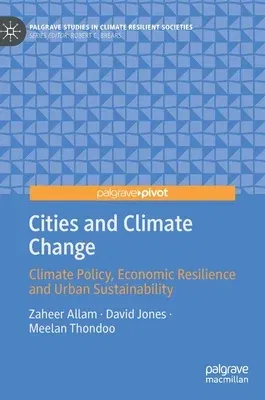Zaheer Allam
(Author)Cities and Climate Change: Climate Policy, Economic Resilience and Urban Sustainability (2020)Hardcover - 2020, 1 May 2020

Qty
1
Turbo
Ships in 2 - 3 days
In Stock
Free Delivery
Cash on Delivery
15 Days
Free Returns
Secure Checkout

Part of Series
Palgrave Studies in Climate Resilient Societies
Print Length
123 pages
Language
English
Publisher
Palgrave MacMillan
Date Published
1 May 2020
ISBN-10
3030407268
ISBN-13
9783030407261
Description
Product Details
Book Edition:
2020
Book Format:
Hardcover
Country of Origin:
NL
Date Published:
1 May 2020
Dimensions:
21.01 x
14.81 x
1.27 cm
Genre:
Urban
ISBN-10:
3030407268
ISBN-13:
9783030407261
Language:
English
Location:
Cham
Pages:
123
Publisher:
Weight:
381.02 gm